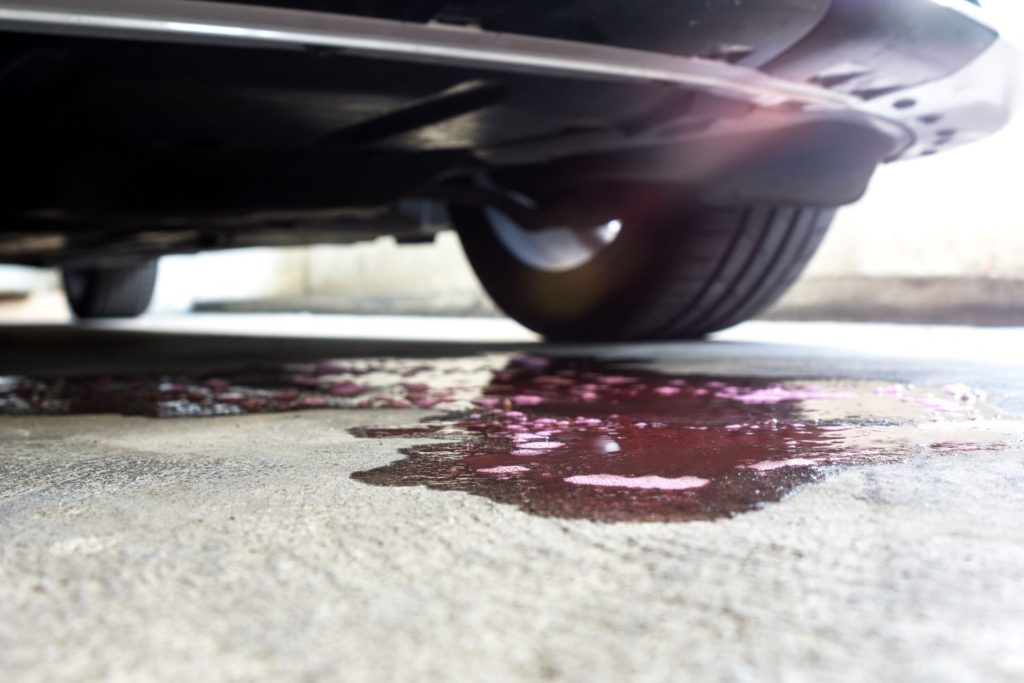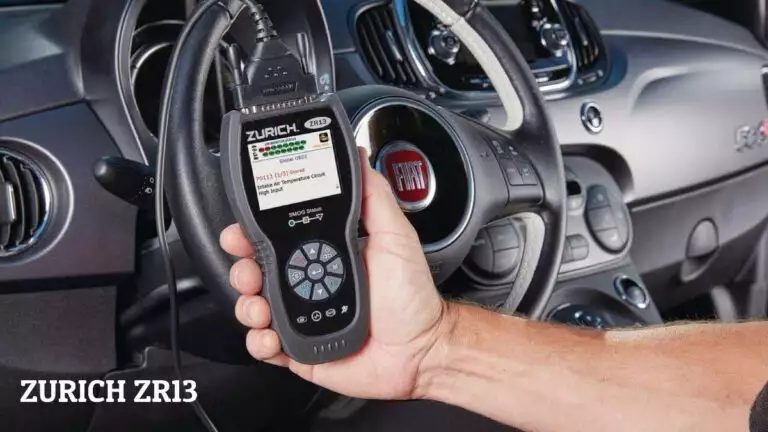Spilled Coolant on Engine
Spilled coolant on the engine can lead to overheating and damage if not promptly addressed. It is essential to clean up the spill immediately to prevent potential issues.
Discovering coolant spilled on your engine can be a concerning situation for any car owner. Not only can it cause the engine to overheat, but it can also lead to damage if left unattended. We’ll explore the reasons why coolant may spill onto the engine, the potential risks involved, and the steps you can take to mitigate any damage.
By understanding how to handle this situation effectively, you can ensure the longevity and performance of your vehicle. Read on to learn more about dealing with spilled coolant on your engine.
Causes Of Spilled Coolant
Leaking Coolant Hose
A leaking coolant hose is one of the primary culprits behind spilled coolant on the engine. Over time, the hose may deteriorate, crack, or develop punctures, leading to coolant leakage. This can result from wear and tear or exposure to extreme temperatures.
Faulty Radiator Cap
A faulty radiator cap can also cause spilled coolant. The cap’s sealing ability may degrade, allowing pressure to escape and coolant to seep out. This can lead to overheating and potential damage to the engine if not addressed promptly.
Cracked Radiator
A cracked radiator is a common cause of coolant spills. The constant exposure to high temperatures and pressure can lead to the formation of cracks in the radiator, resulting in leaks. This issue requires immediate attention to prevent further damage to the cooling system.
Damaged Water Pump
If the water pump becomes damaged, it can also lead to coolant spillage. A malfunctioning water pump may develop leaks or fail to circulate the coolant properly, causing overheating and coolant loss. Regular maintenance is essential to prevent this issue.

Credit: www.carparts.com
Potential Damage To The Engine
Overheating
Spilled coolant on the engine can lead to overheating due to the lack of proper cooling.
Corrosion
When coolant spills onto the engine, it can cause corrosion on various engine components.
Loss Of Coolant
Spilled coolant results in the loss of essential coolant levels, leading to potential engine damage.
Engine Component Failure
Exposure to spilled coolant can cause engine components to fail prematurely.
Steps To Address The Spilled Coolant
When coolant spills on the engine, it is important to take immediate action. Follow these steps to address the spilled coolant effectively and prevent any damage to the engine.
Steps to Address the Spilled Coolant Turn off the Engine After noticing spilled coolant on the engine, the first step is to turn off the engine immediately. Allow the Engine to Cool Let the engine cool completely before attempting to inspect or work on it to prevent burns. Inspect and Identify the Source Next, carefully inspect the engine to determine the source of the coolant leak. Repair or Replace the Damaged Part If you find a damaged hose, clamp, or other components, proceed to repair or replace them promptly. Refill the Coolant Lastly, refill the coolant to the appropriate level, ensuring all connections are secure. Remember to check for leaks and monitor the coolant level periodically to prevent future issues.Preventing Coolant Spills In The Future
Regular Coolant System Maintenance
Regular maintenance of the coolant system is essential to prevent coolant spills. Conducting routine inspections and maintenance helps to identify and address potential issues before they lead to leaks or spills. Ensure that the coolant system is checked according to the manufacturer’s recommended schedule.
Inspecting Coolant Hoses And Connections
Inspecting the coolant hoses and connections for any signs of wear, cracks, or leaks is crucial. Inspect these components regularly to detect any potential issues early on. Replace any damaged hoses or connections promptly to prevent coolant spills.
Checking And Replacing The Radiator Cap
Regularly check the condition of the radiator cap and replace it if it shows signs of wear or damage. A faulty radiator cap can lead to pressure issues within the cooling system, potentially causing coolant spills.
Monitoring Coolant Levels
Constantly monitor the coolant levels to ensure they are within the recommended range. Regularly check for any changes in the coolant levels, as a sudden drop may indicate a leak or other issues that need attention.
Addressing Coolant Leaks Promptly
Any signs of coolant leaks should be addressed promptly to prevent them from escalating and causing potential spills. Identify and fix any leaks as soon as they are detected, whether it’s a faulty hose, loose connection, or a faulty seal. End of Blog Post Section “`
When To Seek Professional Help
If your engine has spilled coolant, it’s important to seek professional help promptly. Ignoring this issue could lead to further damage, increasing repair costs. Professional mechanics have the expertise to diagnose and address the problem effectively, ensuring your engine runs smoothly.
If you’ve experienced a coolant spill on your engine, it’s important to know when to seek professional help. While some minor coolant spills can be handled on your own, there are situations where it’s best to leave it to the experts.
Extensive Engine Damage
If the coolant spill has resulted in extensive engine damage, it’s crucial to seek professional help. Engine repairs can be complex and require specialized knowledge and tools. Attempting to fix extensive damage on your own may worsen the problem and lead to costlier repairs in the long run.
Continuous Coolant Leaks
If your engine continues to experience coolant leaks even after attempting DIY fixes, it’s time to call in the professionals. Continuous leaks can indicate underlying issues such as a cracked radiator or a faulty water pump. Trained technicians can diagnose the root cause of the problem and provide appropriate solutions to prevent further leaks.
Uncertain Or Complex Repairs
Uncertain or complex repairs are another instance where professional help becomes necessary. If you’re unsure about the underlying issue or the repair process seems too complex, it’s best to consult with a mechanic. They have the expertise to accurately diagnose and resolve any coolant-related problems, ensuring a safe and reliable vehicle.
Lack Of Mechanical Knowledge
If you lack mechanical knowledge and experience, it’s highly recommended to seek professional help for any engine-related issues. Coolant spills can be a messy and potentially hazardous affair. Letting a trained mechanic handle the repairs will not only save you time and effort but also ensure the job is done correctly and safely.
Remember, your vehicle’s engine is a critical component, and any coolant-related problems should not be taken lightly. While it’s commendable to attempt minor fixes, knowing when to seek professional help can save you from unnecessary stress and costly mistakes.

Credit: www.thirdgen.org
Credit: f80.bimmerpost.com
Frequently Asked Questions Of Spilled Coolant On Engine
How Long Does It Take For Spilled Coolant To Burn Off?
Spilled coolant typically burns off in 24-48 hours under normal driving conditions. Time can vary based on temperature and driving habits.
How Do You Clean Up Spilled Coolant In An Engine?
To clean up spilled coolant in an engine, wipe with a rag or paper towels. Avoid skin contact and dispose of properly.
Will Coolant Burn Off Engine?
Yes, coolant can burn off in the engine during operation, but it’s not common if the system is functioning properly. Regular maintenance can prevent coolant loss and ensure safe engine operation.
Will Coolant Smoke If Spilled On Engine?
Spilled coolant on the engine may cause smoke.
Can Spilled Coolant Damage The Engine?
Spilled coolant can cause severe engine damage if not addressed promptly. It can lead to overheating and potential engine failure.
What Should I Do After Spilling Coolant On The Engine?
After spilling coolant, immediately turn off the engine and allow it to cool down. Once cooled, carefully clean the spilled coolant and inspect for any damage.
How Do I Clean Coolant Spills On The Engine?
To clean coolant spills, use a mixture of water and mild detergent. Gently scrub the affected area and rinse thoroughly. Ensure no residue is left behind.
Conclusion
Dealing with a coolant spill on the engine requires quick action for preventing damage. It’s crucial to clean up and identify the source of the leak to avoid further issues. Regular maintenance and inspection can help prevent such incidents, ensuring the longevity of your vehicle.
Stay proactive and informed!


